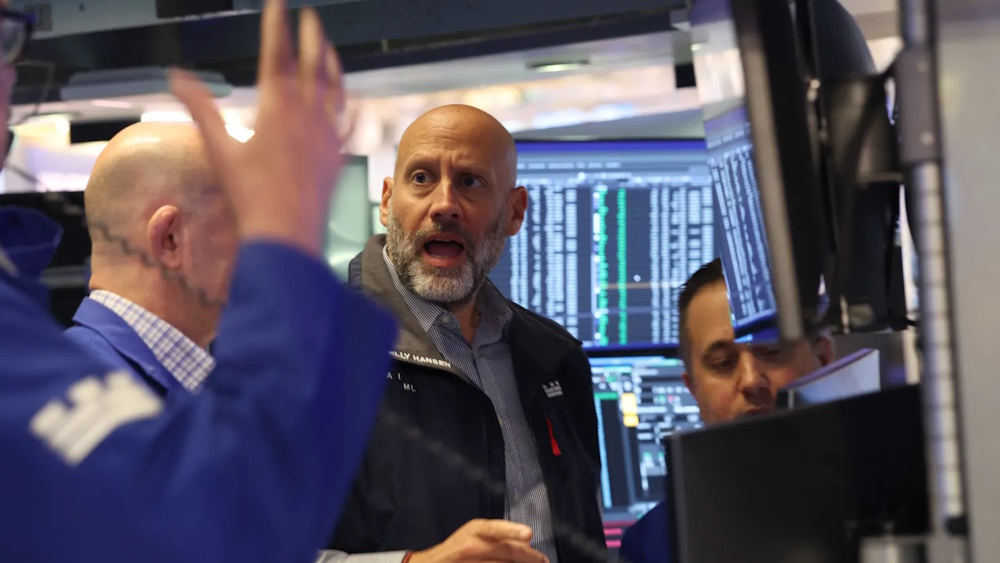
This week, technology stocks experienced significant declines amid ongoing concerns regarding high valuations and the possibility of an artificial intelligence bubble. The Nasdaq Composite experienced a decline of 0.21% on Friday. The technology-focused index experienced a decline of 3.04% over the week, marking its most significant drop since early April, a period when President Donald Trump’s declaration of reciprocal tariffs unsettled the markets. The benchmark S&P 500 experienced a modest increase of 0.13% on Friday, following a decline of as much as 1.3% in earlier trading sessions. The blue-chip Dow concluded the trading session with an increase of 75 points, representing a rise of 0.16%, following a decline exceeding 400 points earlier in the day. The Nasdaq experienced a decline of up to 2.1% earlier in the day before recovering some of its losses. On Friday, equities rebounded from their intraday lows as investors capitalized on the dip, fueled by optimism that the ongoing US government shutdown — now the longest in history — could soon reach a resolution. Following an extended rally, doubts are increasing regarding the sustainability of exceptional returns from high-flying tech stocks.
The CBOE Volatility Index, often regarded as market’s fear gauge, concluded the day with minimal change, despite experiencing an earlier surge of 16% due to a sell-off in the technology sector that impacted market sentiment. Fear and Greed index remained in a state of “extreme fear,” momentarily reaching its lowest point since April. This week, stocks faced downward pressure as the chief executives of Goldman Sachs and Morgan Stanley expressed apprehensions regarding high valuations. Concurrently, market’s expectations for positive earnings surprises have escalated following a significant rally in stock prices over the past few months. “There are some concerns percolating under the surface with AI valuations,” stated Scott Wren. The recent bull run in the market has been propelled by advancements in AI and technology stocks. As stocks rally, they may become comparatively more costly, introducing an extra dimension of analysis for investors. Simultaneously, skepticism is mounting regarding the justification of the substantial financial investments being allocated to AI. Nvidia shares and Palantir shares — two prominent players in the AI sector — experienced declines of approximately 7.1% and 11.2% over the week, respectively, marking their most significant weekly losses since April.
Oracle shares, which soared 36% in one day in September after the company announced a deal with OpenAI, have nearly erased all of their gains since then. This situation exemplifies the resurgence of uncertainty surrounding the AI wave. Oracle shares experienced a decline of 8.89% this week, marking their most significant weekly drop of the year. “Sentiment and positioning have certainly become stretched, leaving the Mag Seven [tech companies] and broader tech complex vulnerable to profit taking,” stated Garrett Melson, portfolio strategist at Natixis Investment Managers Solutions, in an email. “Although there are preliminary indicators that warrant attention regarding circular and debt financing, we believe that much of the apprehension seems to be exaggerated,” Melson stated. This week’s unease was further exacerbated by OpenAI, a pivotal player in the AI surge, which encountered scrutiny after senior executives retracted previous statements implying that governmental assistance could be necessary to finance the approximately $1.4 trillion in chips and infrastructure it has proposed. “Nearly every major technology company in the US equity market has celebrated their entanglement with a company that lacks the resources to meet its obligations,” stated Mike O’Rourke, in a note. “These companies have each introduced a significantly higher level of unpredictability into their financial projections.” On Friday, the S&P 500 experienced a brief decline below its 50-day moving average, a significant benchmark. The index concluded the week with a decline of approximately 1.63%, thereby interrupting a three-week streak of gains. Amidst the prevailing concerns surrounding the technology sector, the specter of a prolonged US government shutdown continues to loom in the background. “The government shutdown creates further risk because the longer it continues, the more its impact will be felt on Main Street,” stated David Russell.
According to the latest survey, consumer sentiment has reached its lowest point since June 2022. It indicates that Americans are growing more pessimistic regarding the economy and their individual financial situations, with numerous respondents pointing to the shutdown as a contributing factor. Equities experienced an uptick from their recent lows on Friday following remarks from Senate Minority Leader Chuck Schumer, who indicated that Democrats were putting forth a proposal aimed at resolving the shutdown. “At this juncture, the responsibility lies with the Republicans,” he stated. The likelihood of Republicans accepting the offer appears low. Investors capitalized on the dip Friday, driven by optimism regarding a potentially swift resolution to the shutdown. “We believe we are approaching the end of the longest government shutdown of all time,” stated Larry Adam, in a note. “Travel issues ahead of the Thanksgiving season will heighten the urgency to resolve the shutdown, and the ongoing uncertainty regarding the disbursement of SNAP benefits this month has persisted in its acceleration.” Amidst the increasing volatility on Wall Street, a decline in the S&P 500 could serve as an advantageous entry point for long-term investors, as noted by Wren at Wells Fargo Investment Institute.

